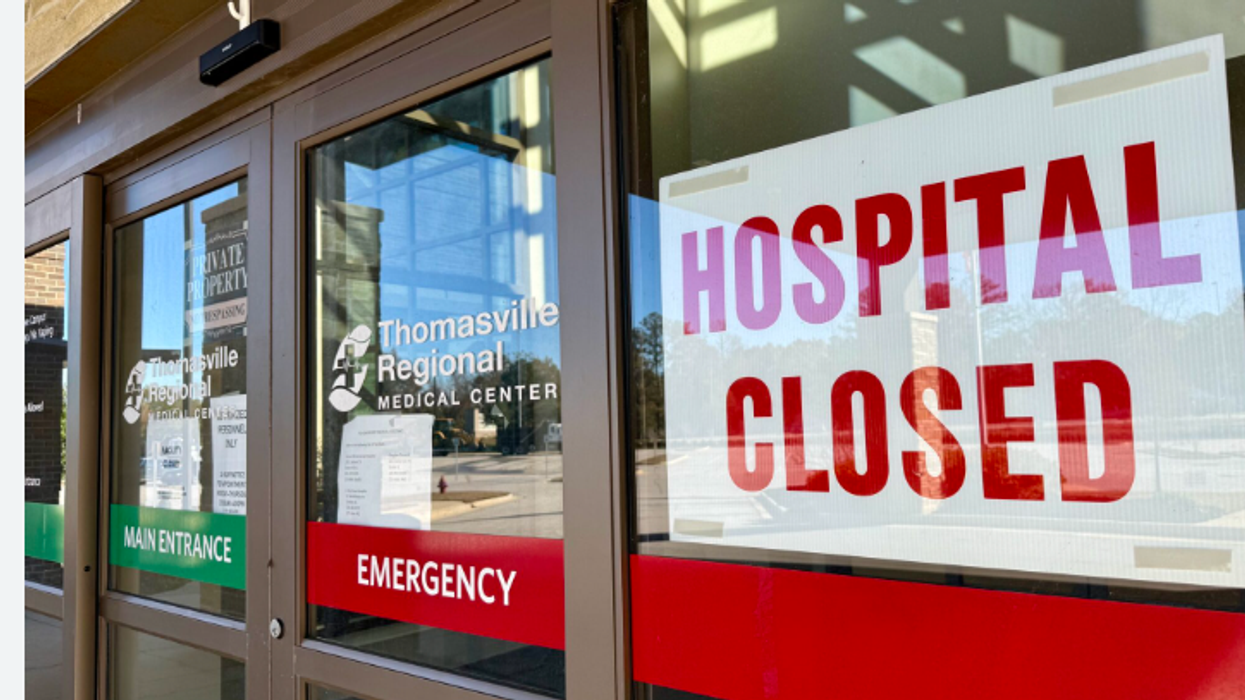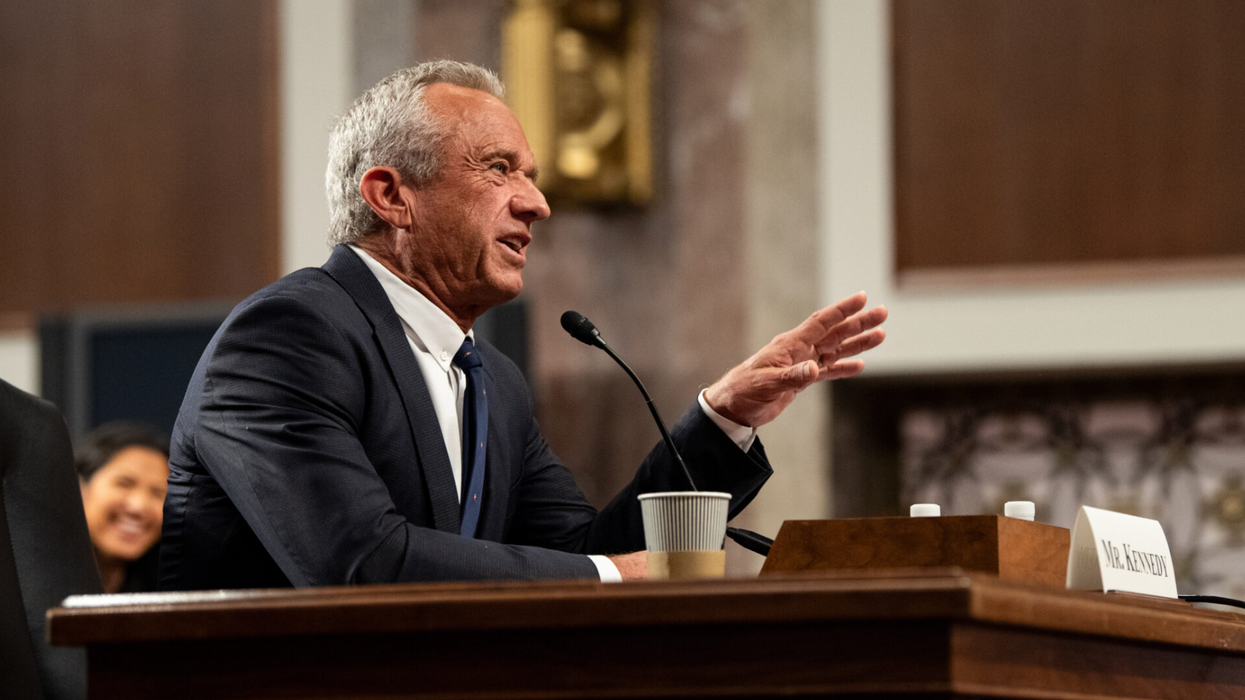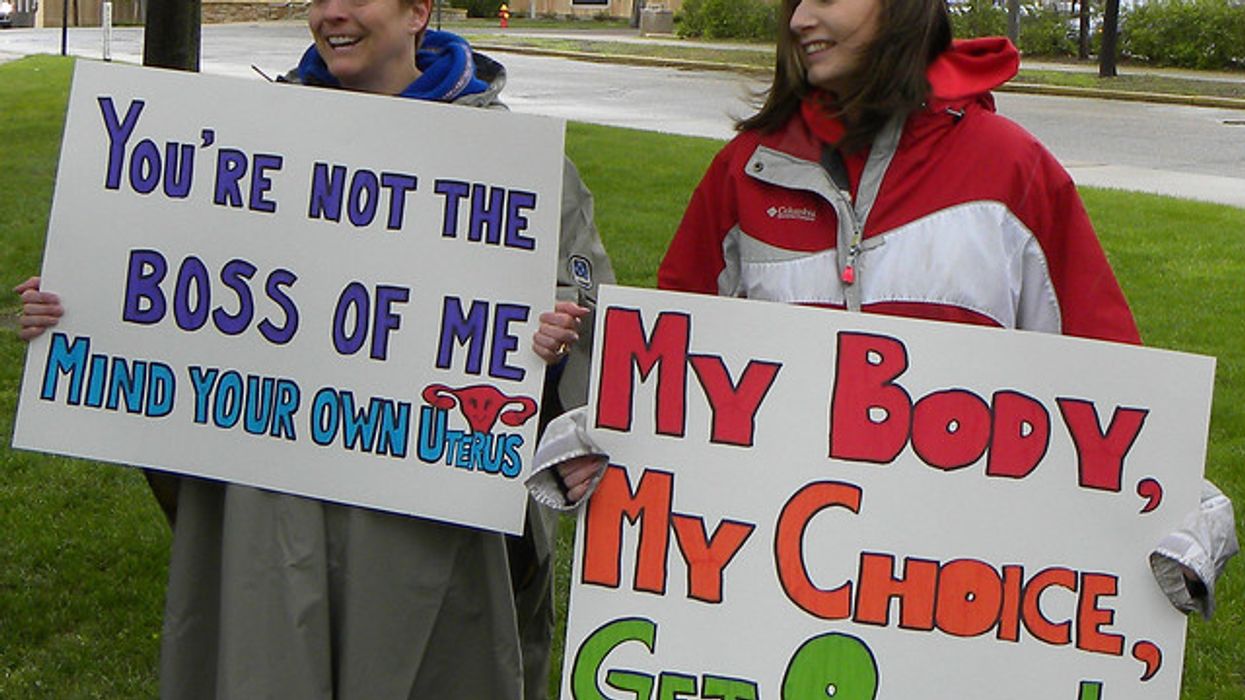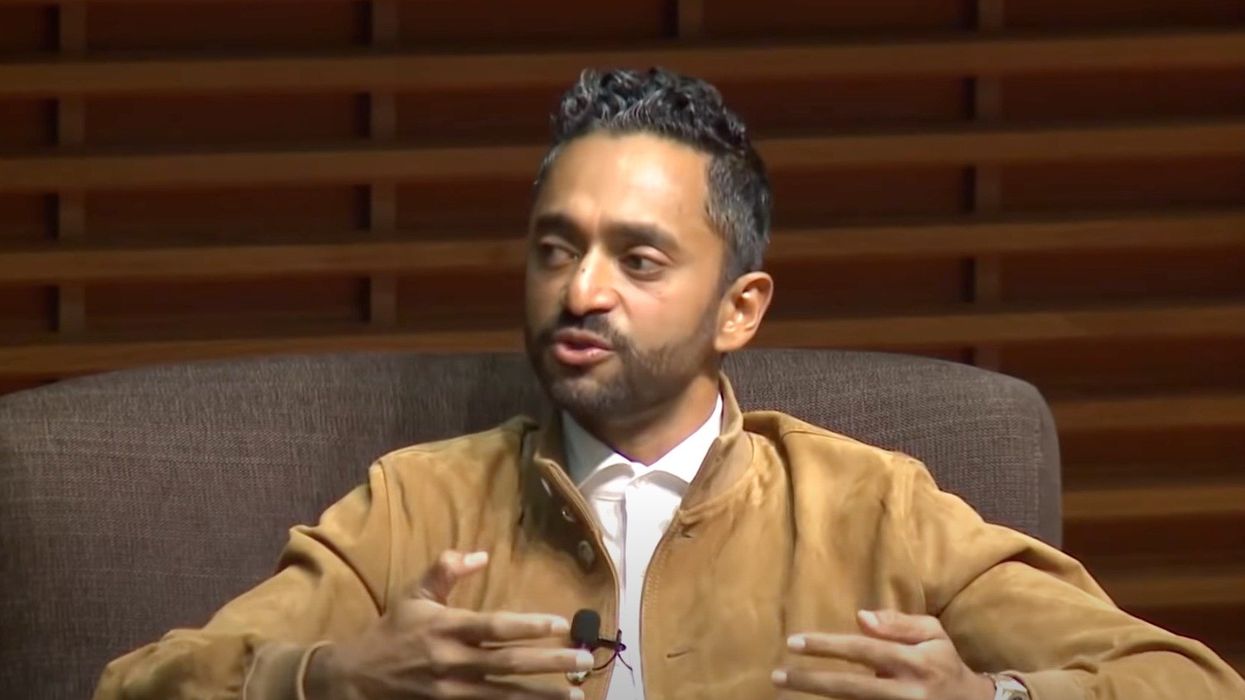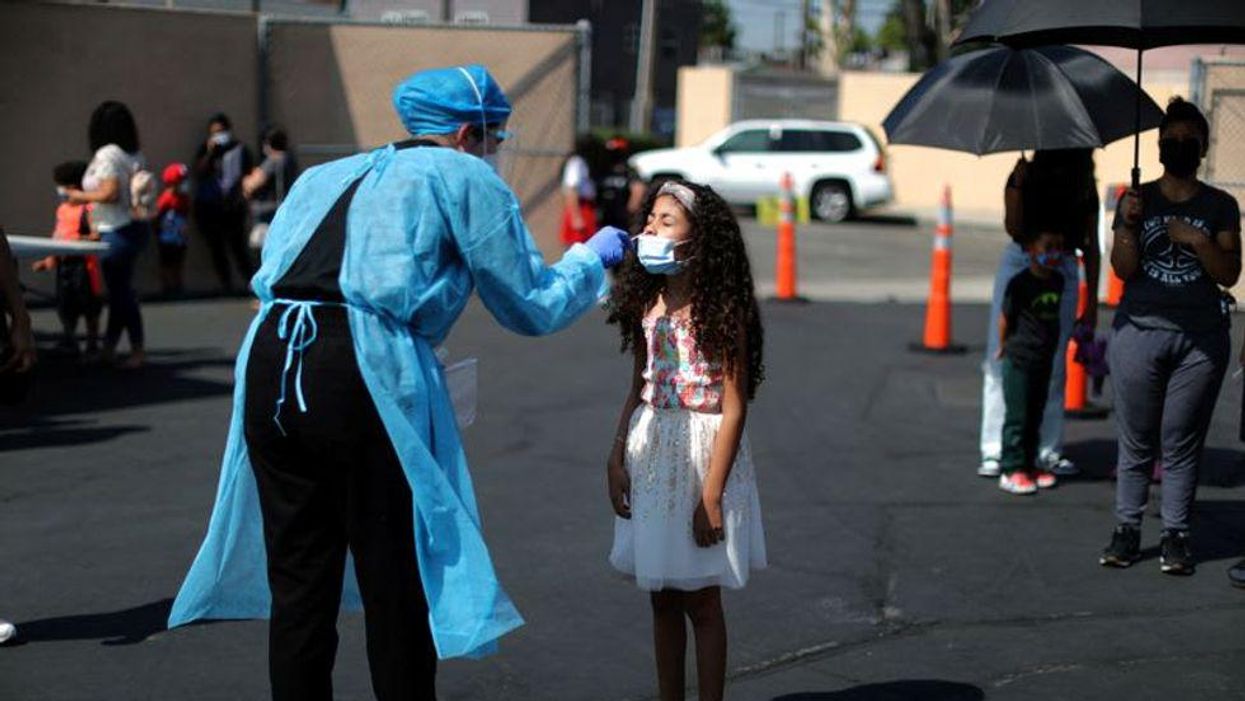How Trump's CDC Failed As Measles Exploded In Texas
By Amy Maxmen
As measles surged in Texas early this year, the Trump administration’s actions sowed fear and confusion among CDC scientists that kept them from performing the agency’s most critical function — emergency response — when it mattered most, an investigation from KFF Health News shows.
The outbreak soon became the worst the United States has endured in over three decades.
In the month after Donald Trump took office, his administration interfered with Centers for Disease Control and Prevention communications, stalled the agency’s reports, censored its data, and abruptly laid off staff. In the chaos, CDC experts felt restrained from talking openly with local public health workers, according to interviews with seven CDC officials with direct knowledge of events, as well as local health department emails obtained by KFF Health News through public records requests.
“CDC hasn’t reached out to us locally,” Katherine Wells, the public health director in Lubbock, Texas, wrote in a Feb. 5 email exchange with a colleague two weeks after children with measles were hospitalized in Lubbock. “My staff feels like we are out here all alone,” she added.
A child would die before CDC scientists contacted Wells.
“All of us at CDC train for this moment, a massive outbreak,” one CDC researcher told KFF Health News, which agreed not to name CDC officials who fear retaliation for speaking with the press. “All this training and then we weren’t allowed to do anything.”
Delays have catastrophic consequences when measles spreads in undervaccinated communities, like many in West Texas. If a person with measles is in the same room with 10 unvaccinated people, nine will be infected, researchers estimate. If those nine go about their lives in public spaces, numbers multiply exponentially.
The outbreak that unfolded in West Texas illustrates the danger the country faces under the Trump administration as vaccination rates drop, misinformation flourishes, public health budgets are cut, and science agencies are subject to political manipulation.
While the Trump administration stifled CDC communications, health secretary Robert F. Kennedy Jr. fueled doubt in vaccines and exaggerated the ability of vitamins to ward off disease. Suffering followed: The Texas outbreak spread to New Mexico, Oklahoma, Kansas, Colorado, and Mexico’s Chihuahua state — at minimum. Together these linked outbreaks have sickened more than 4,500 people, killed at least 16, and levied exorbitant costs on hospitals, health departments, and those paying medical bills.
“This is absolutely outrageous,” said Jennifer Nuzzo, director of the Pandemic Center at Brown University. “When you’re battling contagious diseases, time is everything.”
‘The CDC Is Stressed Currently’
Wells was anxious the moment she learned that two unvaccinated children hospitalized in late January had the measles. Hospitals are legally required to report measles cases to health departments and the CDC, but Wells worried many children weren’t getting tested.
“I think this may be very large,” she wrote in a Feb. 3 email to the Texas Department of State Health Services. Wells relayed in another email what she’d learned from conversations around town: “According to one of the women I spoke with 55 children were absent from one school on 1/24. The women reported that there were sick children with measles symptoms as early as November.”
In that email and others, Wells asked state health officials to put her in touch with CDC experts who could answer complicated questions on testing, how to care for infants exposed to measles, and more. What transpired was a plodding game of telephone.
One email asked whether clinics could decontaminate rooms where people with measles had just been if the clinics were too small to follow the CDC’s recommendation to keep those rooms empty for two hours.
“Would it be possible to arrange a consultation with the CDC?” Wells wrote on February 5.
“It never hurts to ask the CDC,” said Scott Milton, a medical officer at the Texas health department. About 25 minutes later, he told Wells that an information specialist at the CDC had echoed the guidelines advising two hours.
“I asked him to escalate this question to someone more qualified,” Milton wrote. “Of course, we know the CDC is ‘stressed’ currently.”
Local officials resorted to advice from doctors and researchers outside the government, including those at the Immunization Partnership, a Texas nonprofit.
“The CDC had gone dark,” said Terri Burke, executive director of the partnership. “We had anticipated a measles outbreak, but we didn’t expect the federal government to be in collapse when it hit.”
Technically, the Trump administration’s freeze on federal communications had ended Feb. 1. However, CDC scientists told KFF Health News that they could not speak freely for weeks after.
“There was a lot of confusion and nonanswers over what communications were allowed,” one CDC scientist said.
Georges Benjamin, executive director of the American Public Health Association, said the situation was not unique to measles. “Like most public health organizations, we weren’t able to get ahold of our program people in February,” he said. Information trickled out through the CDC’s communications office, but CDC scientists gave no press briefings and went dark on their closest partners across the country. “The CDC was gagged,” he said.
Through private conversations, Benjamin learned that CDC experts were being diverted to remove information from websites to comply with executive orders. And they were afraid to resume communication without a green light from their directors or the Department of Health and Human Services as they watched the Trump administration lay off CDC staffers in droves.
“It’s not that the CDC was delinquent,” Benjamin said. “It’s that they had their hands tied behind their backs.”
To work on the ground, the CDC needs an invitation from the state. But Anne Schuchat, a former CDC deputy director, said that during her 33 years with the agency, federal health officials didn’t need special permission to talk freely with local health departments during outbreaks. “We would always offer a conversation and ask if there’s anything we could do,” she said.
Lara Anton, a press officer at the Texas health department, said the state never prevented the CDC from calling county officials. To learn more about the state’s correspondences with the CDC, KFF Health News filed a public records request to the Texas health department. The department refused to release the records. Anton called the records “confidential under the Texas Health and Safety Code.”
Anton said the state sent vaccines, testing supplies, and staff to assist West Texas in the early weeks of February. That’s corroborated in emails from the South Plains Public Health District, which oversees Gaines County, the area hit hardest by measles.
“Texas will try to handle what it needs to before it goes to the CDC,” Zach Holbrooks, the health district’s executive director, told KFF Health News.
Responding to an outbreak in an undervaccinated community, however, requires enormous effort. To keep numbers from exploding, public health workers ideally would notify all people exposed to an infected person and ask them to get vaccinated immediately if they weren’t already. If they declined, officials would try to persuade them to avoid public spaces for three weeks so that they wouldn’t spread measles to others.
Holbrooks said this was nearly impossible. Cases were concentrated in close-knit Mennonite communities where people relied on home remedies before seeking medical care. He said many people didn’t want to be tested, didn’t want to name their contacts, and didn’t want to talk with the health department. “It doesn’t matter what resources I have if people won’t avail themselves of it,” Holbrooks said.
Historically, Mennonites faced persecution in other countries, making them leery of interacting with authorities, Holbrooks said. A backlash against covid restrictions deepened that mistrust.
Another reason Mennonites may seek to avoid authorities is that some live in the U.S. illegally, having immigrated to Texas from Canada, Mexico, and Bolivia in waves over the past 50 years. Locals guess the population of Seminole, the main city in Gaines County, is far larger than the U.S. Census count.
“I have no idea how many cases we might have missed, since I don’t know how many people are in the community,” Holbrooks said. “There’s a lot of people in the shadows out here.”
Public health experts say the situation in Gaines sounds tough but familiar. Measles tends to take hold in undervaccinated communities, and therefore public health workers must overcome mistrust, misinformation, language barriers, and more.
About 450 people — including local health officials, CDC scientists, nurses, and volunteers — helped control a measles outbreak sparked in an Eastern European immigrant community in Clark County, Washington, in 2018.
Alan Melnick, Clark County’s public health director, said his team spoke with hundreds of unvaccinated people who were exposed. “We were calling them basically every day to see how they were doing and ask them not to go out in public,” he said.
Melnick spoke with CDC scientists from the start, and the intensity of the response was buoyed by emergency declarations by the county and the state. Within a couple of months, the outbreak was largely contained. No one died, and only two people were hospitalized.
In New York, hundreds of people in the city’s health department responded to a larger measles outbreak in 2018 and 2019 concentrated among Orthodox Jewish communities. The work included meeting with dozens of rabbis and distributing booklets to nearly 30,000 households to combat vaccine misinformation.
The effort cost more than $7 million, but Jane Zucker, New York City’s assistant health commissioner at the time, said it yielded immense savings. The average medical bill for measles hospitalizations is roughly $18,500, according to data from prior outbreaks. Then there’s the cost of diverting hospital resources, of children missing school, of parents staying home from work to care for sick kids, and the lasting toll of some measles infections, including deafness or worse.
“I don’t think there’s a price tag to put on a child’s death that would otherwise be prevented,” Zucker said.
Local health departments in West Texas were understaffed from the start. About 18 people work at the South Plains health department, which oversees four vast rural counties. About 50 staff the department in Lubbock, where patients were hospitalized and health workers struggled to figure out who was exposed. In mid-February, Wells emailed a colleague: “I’m so overwhelmed.”
A Death Ignites a Response
On February 26, Texas announced that a six-year-old child had died of measles. Wells heard from CDC scientists for the first time the following day. Also that day, the CDC issued a brief notice on the outbreak. The notice recommended vaccines, but it worried public health specialists because it also promoted vitamin A as a treatment under medical supervision.
In emails, Texas health officials privately discussed how the CDC’s notice might exacerbate a problem: Doctors were treating children with measles for toxic levels of vitamin A, suggesting that parents were delaying medical care and administering the supplements at home. A local Lubbock news outlet reported on a large drugstore where vitamin A supplements and cod liver oil, which contains high levels of vitamin A, were “flying off the shelf.”
Too much vitamin A can cause liver damage, blindness, and dire abnormalities during fetal development.
Milton worried that parents were listening to misinformation from anti-vaccine groups — including one founded by Kennedy — that diminished the need for vaccination by inaccurately claiming that vitamin A staved off the disease’s worst outcomes.
“How many people will choose Vitamin A and not a vaccine because it appears to them there are two options?” Milton asked in an email.
Scientists at the CDC privately fretted, too. “HHS pressed us to insert vitamin A into all of our communications with clinicians and health officials,” one CDC scientist told KFF Health News, referring to the agency’s notices and alerts. “If pregnant women took too much vitamin A during the outbreak, their babies could be profoundly disabled. We haven’t seen those babies born yet.”
Another CDC official said they’ve had to “walk a fine line” between protecting the public based on scientific evidence and aligning with HHS.
While CDC scientists held their tongues, Kennedy exaggerated the power of nutrition and vitamin A while furthering mistrust in vaccines. “We’re providing vitamin A,” Kennedy said in an interview on Fox News. “There are many studies, some showing 87% effectiveness,” he claimed, “against serious disease and death.”
The studies Kennedy referenced were conducted in low-income countries where children are malnourished. Evidence suggests that vitamin A supplementation is seldom useful against measles in the United States, because deficiency is exceedingly rare.
Kennedy deflected criticism from those who call him anti-vaccine, saying that any parent in Texas who wants a measles vaccine can get one. He followed this with dangerously inaccurate statements. “There are adverse events from the vaccine. It does cause deaths every year,” he said. “It causes all the illnesses that measles itself causes, encephalitis and blindness, et cetera.” There is no evidence that measles vaccines “cause deaths every year.” Scores of studies show that the vaccine doesn’t cause encephalitis, that most potential side effects resolve quickly on their own, and serious adverse reactions are far rarer than measles complications.
In another interview, Kennedy said, “The MMR vaccine contains a lot of aborted fetus debris.” The measles, mumps, and rubella, or MMR, vaccine does not contain an iota of fetal cells.
HHS spokesperson Andrew Nixon and spokespeople at the CDC did not respond to queries from KFF Health News.
‘Staff Are Exhausted’
Despite national attention after the country’s first measles death in a decade, West Texas was overwhelmed. In late February and March, hospital administrators and health officials exchanged emails about how to lobby for resources.
“Local hospitals are at capacity,” wrote Jeffrey Hill, a senior vice president at the University Medical Center Health System in Lubbock. “The state reports emergency funds that typically cover a response like the measles outbreak are not available from the federal government right now,” he added.
“I am writing to express our urgent need for additional staff and funding,” Ronald Cook, medical director for Lubbock, said in an email, drafted with other Lubbock health authorities, to the deputy city manager. “Our Capacity is Stretched Thin: The health department has been operating seven days a week since February 2nd. Staff are exhausted.”
The city of Lubbock fronted money to help the local health department hire temporary staff. The state did not provide money, but it asked the CDC to send epidemiologists. Some came to Texas in early March. Then Texas requested federal funds.
None arrived, even as the outbreak approached 500 cases. It spread to Mexico when an unvaccinated Mennonite child returned home after visiting family in Seminole. This would fuel the largest outbreak Mexico has seen in decades, with at least 3,700 cases and 13 deaths in the state of Chihuahua.
Then another child in West Texas died of measles.
In a rare moment of openness, CDC scientist David Sugarman mentioned the outbreak at a vaccine advisory meeting in late April. “There are quite a number of resource requests coming in, in particular from Texas,” Sugarman said. “We are scraping to find the resources and personnel needed to provide support to Texas and other jurisdictions.”
Federal funds arrived in Texas on May 21, said Anton, the state health department spokesperson. By then, the crisis was fading. The outbreak seemed to have burned until every unvaccinated person in Seminole was infected, said Richard Eby, a doctor at Permian Regional Medical Center who treated some measles patients. Hundreds, if not thousands, of cases have probably gone undetected, he said. “A lot of people presumed their kids had measles,” he said, “and didn’t see the need to confirm it.”
On Aug. 18, health officials declared the West Texas outbreak over, but the consequences of the catastrophe will be lasting.
The outbreaks it sparked across the U.S. and Mexico are still spreading.
More are inevitable, Nuzzo said. A growing number of parents are deciding not to vaccinate their kids, worried over unfounded rumors about the shots. Misinformation is flourishing, especially after Kennedy fired vaccine experts who advise the CDC and replaced them with doctors and researchers on the fringes of the scientific establishment. For example, one of his recent appointees, Robert Malone, blamed the deaths of children with measles on “medical mismanagement,” without evidence.
At the same time, states are downsizing programs for emergency response, disease surveillance, and immunization after the Trump administration clawed back more than $11 billion in public health funds earlier this year.
Amid Lubbock’s toughest months, Wells sent an email to the department’s exhausted staff. “The future is uncertain, and I know this is an unsettling time for many of us,” she wrote. “Every day we show up and do our jobs is an act of resilience.”
Reprinted with permission from Daily Kos.


